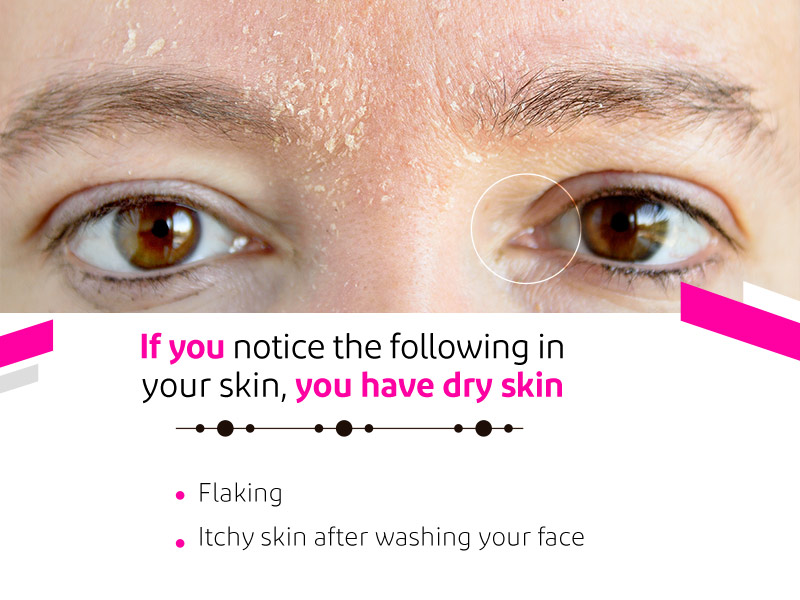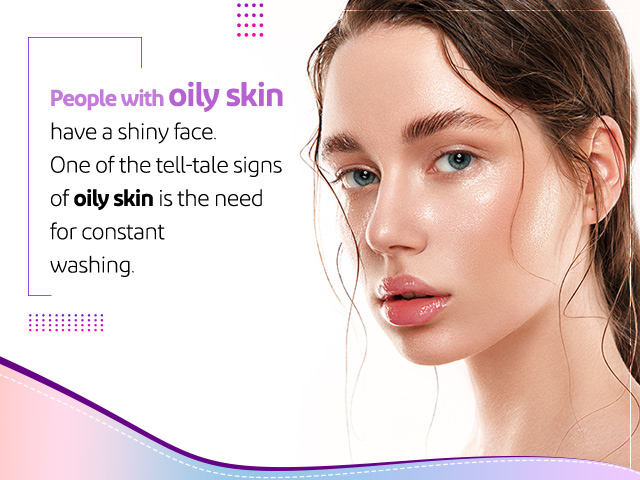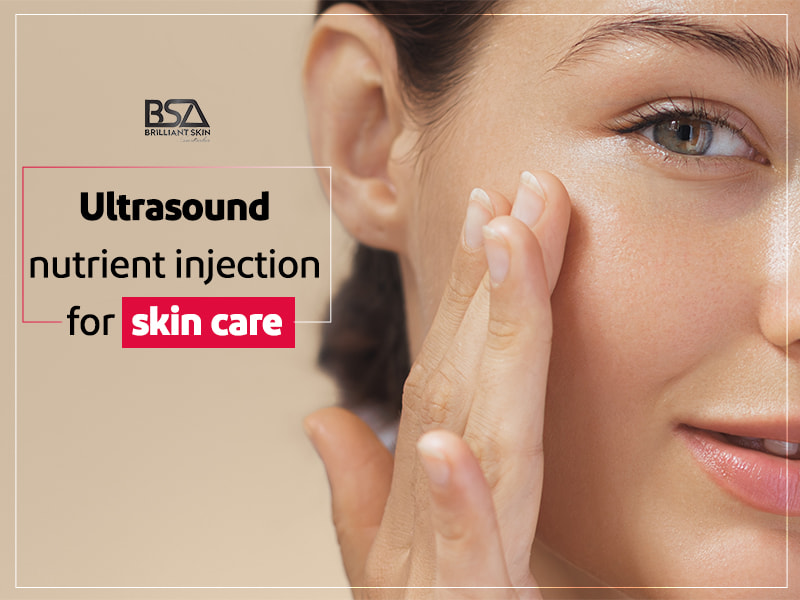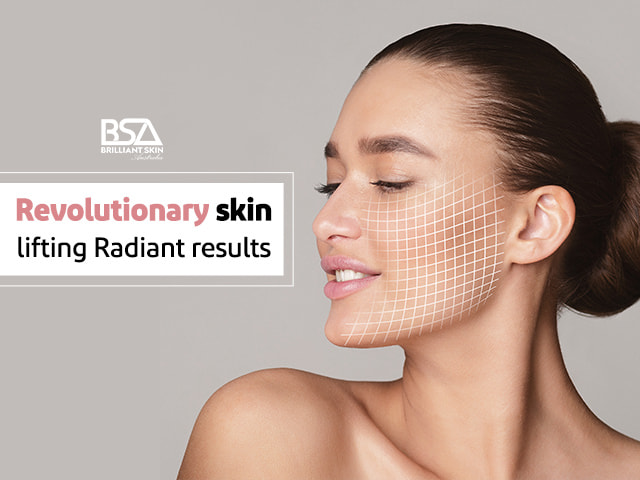What Is My Skin Type? A Step-By-Step Guide
- Updated January 17, 2023
- by Honey Seida

Human skin comes in different types, and based on its type, proper skin care should be observed. If you want to learn about skin types and how to recognize the right products for your skin, read this post. Have you ever tried a new skincare product that did not work or even made your skin worse? If your answer is yes, you should know that this happened because the product you were using is not suitable for your skin type.
You have probably heard that for beauty and skincare, you should use products that are compatible with your skin type. Keep in mind that skincare products are not a one-size-fits-all formula (which would make things a lot easier if they were). That is why it is important to know what skin type you have in order to get the most out of your skin care regimen.
What Factors Determine Your Skin Type?
- Genetics: You inherit your skin type from your parents. So, one of the most crucial factors in determining the type of your skin is your genes.
- Weather: changing your city of residence and entering a new environment can change your skin type and maybe even improve it.
- Hormones: Hormonal fluctuations at different stages and times of life, such as pregnancy, can affect your skin type.
- Medications: The medications you take can cause side effects such as dryness or sensitivity of your skin.
- Diet/Allergies: The foods you eat throughout the day will definitely affect your skin for better or worse. If you think a food allergy may be the source of your skin problems, talk to your doctor.
- Skincarere: As mentioned earlier, using the wrong product can disrupt your skin's balance.
How to Recognize Your Skin Type?
The first step for effective skin care is knowing the types of skin and their characteristics. You can determine your skin type with a simple test. To do this, follow the steps below.
- First step: Clean your skin thoroughly with mild cleansers. Remove any makeup, oil, or dust from your face.
- Second step: Dry your skin with a soft towel. Avoid using any moisturizer or skin serum. Let your skin return to its natural state.
- Step three: Wait for an hour. Do not touch your face during this time. After an hour, look closely at your skin and pay attention to its quality.
Skin Type One Hour after Washing Your Face
- Dry: feeling itchy and stretching and flaking on the face
- Oily: feeling oily and shiny, especially in the T-zone of the face
- Mixed: Oily in the T-zone and normal or dry on the cheeks and jawline
- Normal: The best condition where the skin is neither dry nor oily
- Sensitive: the skin is sometimes red, itchy, and inflamed
Now that you understand how to identify your skin type, it is time to learn more about the characteristics of skin types in order to choose the best care for your skin.
Due to the high activity of sebaceous glands in teenagers and people under 20 years old, the skin of these people is usually oilier. People in their late 20s to early 30s usually have mixed skin types.
From the late 30s onwards, the skin tends to become drier; Because with age, the skin loses its ability to produce fat and retain moisture.
Read more: Why does my skincare pill?
Dry Skin Type
If your skin feels stretched and itchy all year round, especially after washing, or if you never feel enough moisture on your skin, your skin type is dry. In this case, you may also experience flaking on your skin. For example, when you scratch your nail on your skin, tiny flakes may start to fall off.
It is also important to note that there is a difference between dry skin and dehydrated skin. Dry skin is one of the types of skin that occurs due to the lack of oil production, while dehydrated skin is a temporary skin condition due to lack of water, weather conditions, environmental factors or not taking in enough water.
Causes of Dry Skin
The following can be among the major causes of dry skin:
- Your skin is genetically prone to produce less fat or sebum
- lack of hormonal balance
- Dry weather
- Using heating devices with a high temperature in cold seasons
- Hot shower or bath
- Some medicine
- Getting older (with aging, metabolic changes cause the skin to become drier and thinner).
Oily Skin Type
In this case, your skin is shiny and there is a lot of fat on your face, nose, shoulders, and back. You may feel the need to wash your face again in the afternoon when oil production is at its peak. In this case, the pores of the skin are more easily blocked, and after a while, they turn into blackheads or whiteheads, inflammatory red pimples, or cyst-like acne.

The good news is that studies have shown that at least the moisture in oily skin prevents the appearance of wrinkles on the face.
Causes of Oily Skin
When your skin's sebaceous glands produce more oil due to genetic factors, your skin will be oily. Other causes include hormonal changes, humid weather, or excessive drying of the skin. Over-drying your skin forces your skin to produce more oil.
Mixed Skin Type
Mixed skin in the T area of the face (forehead, nose, chin) is oily, has open skin pores or pimples, but is dry or normal in the cheek and jaw area. Treatment of this type of skin can be difficult; Because you have to deal with two different issues to achieve balance in your skin.
Causes of Mixed Skin
Genes or excessive production of fat in the T area of the face are the major factors leading to mixed skin. The products you use may be one of the causes of your skin's imbalance. When you are treating the oily parts of your skin, you should also take care of the dry parts of your face and vice versa and that can be difficult.
Normal Skin Type
In this case, your skin is completely uniform; It has little fat, dryness, or a few pimples which only occur occasionally and resolve quickly. Your skin will not react negatively to cosmetics and your face will look balanced.
Causes of Normal Skin
Genes are one of the main reasons leading to normal skin, and of course, you can consider yourself lucky if you have the right set of genes for your skin.
Sensitive Skin Type
If your skin is irritated, inflamed, or itchy and becomes dry and red, you have sensitive skin. In this case, the skin reacts when using a new product, flares up in the heat, and burns when you shave. People with sensitive skin easily get sunburned and suffer from diseases such as eczema and rosacea.
Causes of Sensitive Skin
Unfortunately, there are many things that can increase skin sensitivity and it is difficult to name a specific cause. Genetics and hormonal fluctuations are considered the main reasons for sensitive skin. Hot or cold weather, dry air conditions, and hard water can take a toll on the skin too.
Also, the products you use, such as cosmetics, lotions, soaps, and detergents, can contain fragrances or chemicals that cause skin allergies and sensitivities.
Read more: Best Skincare for Sensitive Skin
Final Word
Now that you are familiar with the characteristics of different skin types, how do you identify your skin type and how do you choose the right product for your skin?






